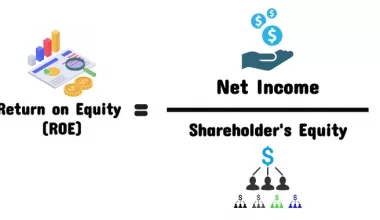Worker polls on hybrid working will affect your work-from-anywhere strategy. Hybrid working mixes office-based and remote work in order to benefit from the positive aspects of both work settings while avoiding their negative ones. The majority of us began working from home during the outbreak, which was good for many firms. It will be clear by 2021 that we do need some pre-pandemic regularity. As a result, in the post-pandemic environment, hybrid work is currently swiftly gaining ground. Here are the hybrid work survey questions for remote workers in 2022.
Hybrid Work Survey Questions 2022
Employees stationed in offices or other central places and those who work remotely typically make up a hybrid workforce. Depending on their preferences, employees can select either their most productive location or a combination of the two.
Because of this, some workers will only work remotely from their houses. Some folks solely choose office jobs. Finally, some workers will spend two or three days a week working from home while working the other days in the office. This mixed work paradigm is becoming more popular. But managing a blended workforce has its difficulties. While most professionals appreciate having the freedom to set their own schedules, many miss truly interacting with their coworkers. These discussions are not permitted during video zoom meetings.
When conducting survey questions of hybrid work employees in 2022, you might inquire about the following.
#1. According to You, How Much Remote Work Should There Be in Contrast to Office Jobs?
While some people prefer the office because they prefer social interaction or don’t have access to a suitable workplace, others who enjoy working from home may choose to do so most of the time. With a five-day workweek, it seems unlikely that there will be a 50% split between office and remote employment. Therefore, understanding the answer to this question will help you organize your workspace and determine how many potential returnees there are.
#2. Do You Have Access to all The Technology You Need To Do Your Job Wherever You Are?
Internet access and digital technologies like Microsoft Teams are necessary. All employees must have access to everything, regardless of their status. Working from home and going to the workplace should be simple.
#3. What Further Digital Tools Do You Think You Need?
To support hybrid working and maintain productivity wherever it is employed, new digital tools may be necessary. Consider following this advice and investing in your hybrid work survey questions in 2022.
#4. Do You Possess Everything Required to Fulfill Your Obligations Wherever You Are?
It could take some work to make sure that staff members have the right equipment for remote work. The workplace supplies, such as chairs and monitors, still need to be delivered to the employees’ residences.
#5. What Further Equipment Do You Think Required?
Many of us “made do” with our remote working equipment throughout the outbreak, but updating our home offices may be necessary if we are to truly benefit from hybrid working. It might be as easy as investing in more comfy chairs or displays.
#6. How Satisfied Are You With The Number of Meetings You Attend Now?
People had become weary of viewing themselves and their coworkers in such an unnatural way by the year 2020, and the term “Zoom fatigue” had attracted significant media attention. Consider switching between in-person, audio, and video meetings if your staff is dissatisfied with how frequently you have meetings to keep everyone engaged. In situations where employees are permitted to miss meetings, notes are taken in their stead.
#7. Feeling Isolated From The Rest of The Business?
Working remotely can cause a disconnect between individuals, teams, and the greater corporation. One of the main benefits of the 2022 hybrid work survey questions is that some of the freedoms associated with remote work are preserved but the requirement for physical presence at the workplace is reinstated. If employees claim to be lonely at home, inclusivity needs to be greatly improved. In the absence of this, production may decline and employee churn may rise.
Because most people have been in their houses for longer than a year, even minor changes can have a big impact. A morning team meeting or a weekly or monthly office brainstorming session can suffice.
#9. Do You Feel at Ease Talking to Your Coworkers Online During Coffee Breaks?
It’s crucial to refrain from pressuring employees excessively to utilize social media. Some employees could have social anxiety, which they might even think is bad for their mental health. Some individuals who were the focus of attention at work might need online social engagement since they are experiencing problems at home. Take suggestions into account because there isn’t one answer that fits everyone.
#10. What Concerns You the Most About Hybrid Work?
There could be some interesting answers that weren’t previously considered. By foreseeing probable issues and creating answers beforehand, a seamless shift to hybrid working can be accomplished.
#11. Do You Think Having a Part-Time Job Could Prevent You From Advancing Professionally?
Remote workers are expected to be unable to develop in their jobs or learn new skills. Whatever the current level of fear associated with this perspective, employers should be aware of it and take measures to ensure that hybrid working does not negatively affect the careers of their employees.
#12. In Your Perspective, How Could Our Hybrid Working Arrangements Be Improved?
As there is always an opportunity for improvement, this encourages staff members to communicate any potential issues they may be facing.
Remote Hybrid Work Survey
Some survey questions for hybrid remote work are as follows:
Why Survey Your Remote Workers?
The majority of businesses today spend on fostering a pleasant workplace culture because they understand that content workers are more productive.
Getting information directly from the employees themselves is the key to understanding the employee experience. Establishing a feedback culture will help managers better understand how employees feel about working for their organization through one-on-one feedback sessions, team meetings, or anonymous surveys.
There are special issues related to the growth of remote work that has an impact on worker engagement and productivity. Understanding how remote workers feel about their work situation is essential to ensuring their continuing productivity and success given that the popularity of hybrid survey work shows no signs of declining.
What Are The Struggles of Remote Hybrid Work Survey?
It could be seductive to believe that overseeing a remote workforce is similar to overseeing staff members in an office. However, the move to remote work has brought forth fresh problems and difficulties for both managers and employees. Despite having the option to work from home, 30% of employees endure intolerable levels of stress, according to Officevibe’s State of Employee Experience survey.
It could be difficult for managers and executives to comprehend the difficulties of working remotely if they continue to work in an office setting. Delivering the appropriate support and addressing the specific difficulties that arise with a remote workforce depend heavily on employee feedback.
#1. Keeping a Good Work-Life Balance
Supporting remote workers in maintaining a healthy work-life balance presents managers with their largest challenge. Because so many people lack a home office, the distinction between personal and professional life frequently blurs.
The urge to “just finish up this one assignment” before logging off might be very great. Some people also find it difficult to get going in the morning for the straightforward reason that there is no clear transition from home to work that puts them in the working frame of mind.
#2. Loneliness
You can still make friends at work during casual conversations, even if you don’t get along with everyone on your team. Team leaders and employees can promote a sense of community and social wellness by joking around.
The majority of these social connections are broken when working remotely. Many remote workers may work the entire day without speaking to anyone else, which can cause loneliness and isolation.
#3. Collaboration and Communication May be Challenging When Working With Remote Team Members.
There are many many ways that people can express themselves, including through body language and other non-verbal indicators. These cues provide context for communication for both parties and have the power to significantly change the meaning of uttered words.
These non-verbal cues cannot be adequately communicated through text-based communication. When you think you are writing a casual, informal email, the receiver might think you are being sarcastic or too casual. Because it’s difficult to quickly change your tone, neither party has the necessary communication skills for the workplace. While video talks have the potential to improve some communication problems, they lack the adaptability and comprehension that come from teamwork.
#5. Distractions in The Home
When working in a defined office space, employees are more likely to concentrate on their tasks in a distraction-free setting. When working remotely, it’s possible for distractions like pets, home repairs, and even administrative duties to impair concentration.
Today, many people use coworking spaces or go to coffee shops to work remotely without being disturbed by their homes. Because not every remote team member will agree that these are the best options, it’s crucial to offer the appropriate assistance so that hybrid or remote workers may concentrate on their work.
#6. Staying Motivated
It could be quite difficult for people to be self-motivated in a calm, remote area. If there is no contact, remote workers may feel as though their efforts are not valued, which can demoralize a team and make them work harder. Even though it is the team leader’s responsibility to maintain team morale during a project, working remotely may make the task much more challenging.
#7. Working Together Across Time Zones
Any distributed team finds it incredibly challenging to work together when team members check in from various locations. Different time zones make administrative tasks more difficult, and organizing remote teams involves far more preparation than simply calling an impromptu meeting.
#8. Having the Required Equipment
Not every person starting a remote job has the required tools. Others may require high-speed internet connectivity, while some folks may rely on their work laptops. Making sure that everyone has everything they need is essential for assisting remote teams in setting up shop as soon as feasible.
Deloitte Hybrid Work Survey
The use of flexible work arrangements is encouraged and prioritized in today’s market notwithstanding any potential harm to career advancement. A Deloitte hybrid work survey of 1,000 US professionals working in the outside market looks at the value of job flexibility. It also makes clear the actions managers must take to coordinate with their staff. According to the findings, 94% of respondents think having more work flexibility would be beneficial, with a better work-life balance and a reduction in stress being the two main advantages.
The Research For Deloitte Hybrid Work Survey Also Found That:
Due to potential consequences for work advancement, professionals could get demotivated. One-third of those who say that nothing would stop them from utilizing job flexibility are professionals. Despite the fact that more than 30% of respondents claim they would not use flexible employment options because they would not trust their employers and because doing so would probably have a negative impact on their professional development, they do acknowledge that even if they did, they would not.
There are still a lot of conventional workplaces. 80% of professionals believe that a traditional work environment, which is defined as regular attendance at an office or working regular business hours, is essential for career growth.
Professionals make use of the choices that companies offer. Professionals who say their employers have flexible work schedules report that 82% of the time they have been abused. The options that were most sought were remote jobs and flexible work hours. A shorter workweek was in third place, far behind.
Workplace flexibility can benefit mental health. 43% of professionals consider better work-life integration as the top benefit of job flexibility, followed by less stress and improved mental health. Nearly 30% of professionals believe they flexible culture. According to 52% of experts, the CEO or management has the biggest effect on encouraging flexibility inside their firm.
Information About
Research on employee burnout: The external workplace study by Deloitte examines the causes and effects of ongoing, unacceptable stress. Deloitte Insights looks at how businesses can benefit from a rested workforce and how they might be passing up a huge chance to upskill workers and achieve a competitive edge. Technology that is advantageous According to Deloitte Insights, digital technology may have advantages and disadvantages for both individuals and companies. How can firms make sure that the benefits outweigh the drawbacks?
What is Hybrid Survey?
A so-called hybrid survey uses multiple survey techniques at once. The combination of written, telephone, online, and oral surveys makes sure that the broadest target audience is reached and catered to.
How Do You Evaluate a Hybrid Work?
6 indicators of successful hybrid working
- Office utilization.
- Employee retention.
- Employee satisfaction.
- Engagement in the hybrid working environment.
- Meeting participation
- Collaboration levels.
What is A Hybrid Work Approach?
A hybrid work environment combines office and remote work to give employees flexibility and assistance. Employees often have greater work-life balance and more autonomy in hybrid workplaces, which results in higher levels of engagement. Building a more productive, healthy, and stable workforce is advantageous to employers.
What Are 2 Main Types Of Survey?
The questionnaire and the interview are the two main categories into which surveys can be separated. The respondent normally fills out questionnaires on paper and with a pencil. The interviewer concludes interviews based on what the responder says.
What Are The 3 Types of Surveying?
Today’s most common surveys are geodetic, topographic, and cadastral.
What Are The Three Most Common Hybrid Work Models?
The four most typical hybrid work models are as follows:
- Flexible hybrid work model.
- Fixed hybrid work model
- Office-first hybrid work model.
- Remote-first hybrid work model.
Related Article
- Hybrid Workplace: Building Strategies
- HYBRID REMOTE: Meaning, Jobs, And Schedules
- STARTING A NEW JOB: 5 Questions to Ask, Checklist & All You Need
- CRUCIAL BUSINESS QUESTIONS for Small & Large Businesses 2022






